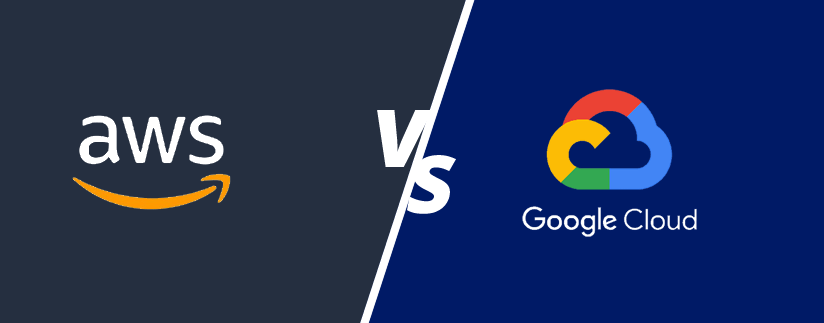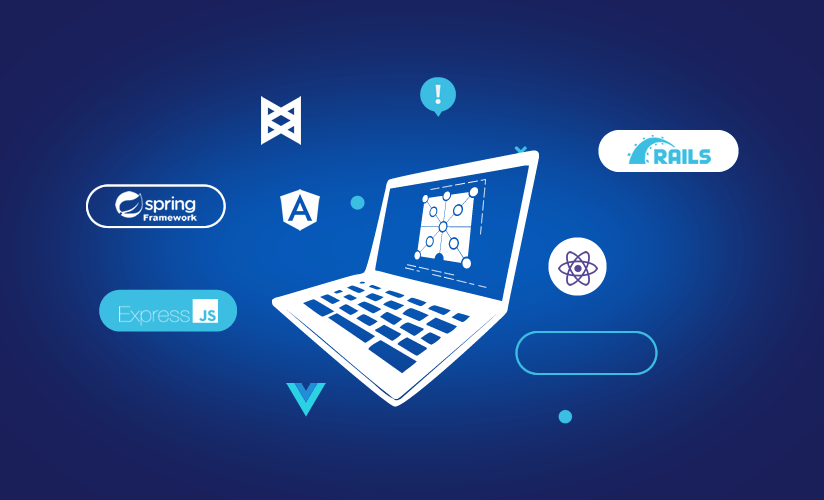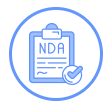Google Cloud vs. AWS: A Comparison of Cloud Computing Services

Are you currently navigating the intricate cloud computing landscape, pondering which industry titan – Google Cloud or Amazon Web Services (AWS) – holds the key to unlocking your business’s true potential? Fear not, for we are here to guide you through this compelling journey of exploration and comparison.
In today’s dynamic business environment, cloud computing has emerged as a catalyst for transformation, offering scalability, cost-efficiency, and cutting-edge innovations. As organizations seek to leverage the power of the cloud, Google Cloud and AWS stand tall as unrivaled contenders, each offering a rich arsenal of services and advancements.
In this blog, we will delve into the world of cloud computing, explore the advancements in this technology, and conduct a detailed comparison between Google Cloud and AWS to help you make an informed decision for your organization’s cloud needs.
What is Cloud Computing?
Cloud computing is a revolutionary paradigm that has transformed the landscape of modern computing. It refers to the delivery of on-demand computing resources and services over the internet. Instead of relying on local servers or physical infrastructure, cloud computing enables users to access a vast pool of virtualized resources, including storage, servers, databases, networking, software applications, and more.
The core principle behind cloud computing is its ability to offer scalability and flexibility to businesses and individuals alike. Users can effortlessly scale their resources up or down based on demand, allowing them to optimize costs and performance efficiently. Additionally, cloud computing eliminates the need for upfront capital expenditures on hardware and infrastructure, as users only pay for the resources they consume, typically on a pay-as-you-go basis.
With cloud computing, users can access their data, applications, and services from anywhere with an internet connection, promoting collaboration and remote work capabilities. The cloud’s inherent redundancy and distributed architecture also enhance data availability and reliability, ensuring that critical information remains accessible and secure. As technology continues to advance, cloud computing continues to be a driving force behind the digital transformation of businesses and the way we interact with technology.
An Overview of Advancements in Cloud Technology
Over the years, cloud technology has evolved significantly, addressing the demands of modern businesses. Advancements such as serverless computing, containerization (using tools like Docker and Kubernetes), AI-driven services, edge computing, and hybrid cloud solutions have further enhanced the capabilities and flexibility of cloud platforms.
- Serverless Computing: Abstracts server management, enabling developers to focus solely on code without worrying about underlying infrastructure.
- Containerization: Using tools like Docker and Kubernetes, it allows efficient deployment and management of applications across various environments.
Artificial Intelligence (AI) Integration: AI-driven services offer sophisticated data analysis, natural language processing, and predictive capabilities to enhance decision-making and customer experiences.
- Edge Computing: Brings computing resources closer to end-users, reducing latency and enabling real-time processing for time-sensitive applications.
Hybrid Cloud Solutions: Seamless integration between public and private cloud environments, offering flexibility, data sovereignty, and cost optimization.
- Quantum Computing: In the experimental phase, quantum computing promises exponential gains in processing power and could revolutionize complex problem-solving.
These advancements have transformed cloud computing into a dynamic and adaptive ecosystem, empowering businesses to innovate, improve efficiency, and deliver cutting-edge solutions to their customers. As technology continues to evolve, the future of cloud computing remains bright, with more innovations on the horizon.
Brief on Google Cloud 
Google Cloud, launched in 2011, is Google’s cloud computing platform that provides a wide array of services, including computing, storage, databases, machine learning, data analytics, and more. Google’s expertise in managing its vast global infrastructure translates into a reliable and high-performance cloud service for businesses of all sizes.
Google Cloud is a leading cloud computing platform offered by Google, providing a comprehensive suite of cloud services and tools to cater to diverse business needs. Leveraging Google’s expertise in managing a vast global infrastructure, Google Cloud delivers a reliable, secure, and high-performance cloud environment.
Key features of Google Cloud include
- Computing: Google Compute Engine offers scalable virtual machines for running applications and workloads efficiently.
- Storage: Google Cloud Storage provides reliable and scalable object storage, suitable for storing and accessing various types of data.
- Databases: Google Cloud offers managed database services, including Cloud SQL for relational databases and Cloud Firestore and Datastore for NoSQL databases.
- Machine Learning: Google Cloud AI/ML services like TensorFlow and AI Platform enable businesses to build, train, and deploy machine learning models for data analysis and automation.
- Big Data and Analytics: With services like BigQuery and Dataflow, businesses can process and analyze vast amounts of data in real-time, gaining valuable insights.
- Networking: Google Cloud’s global network ensures low-latency and high-performance connectivity for applications and services.
Google Cloud’s commitment to innovation, data security, and developer-friendly interfaces makes it an attractive choice for businesses seeking cutting-edge cloud solutions to drive their digital transformation journey.
Brief on AWS

Amazon Web Services (AWS), introduced in 2006, is the pioneering cloud computing platform offered by Amazon. AWS is renowned for its extensive range of services, encompassing computing, storage, networking, AI/ML, IoT, security, and more. With a robust global presence, AWS serves millions of customers worldwide, from startups to enterprises.
Amazon Web Services (AWS) is a pioneering cloud computing platform offered by Amazon, setting the industry standard for cloud services. AWS delivers a comprehensive range of cloud solutions, empowering organizations with scalable and flexible computing resources. Its vast array of services includes compute instances, storage options, databases, networking, machine learning, analytics, and more.
Key features of AWS include
- Elastic Compute Cloud (EC2): Scalable virtual servers that allow users to run applications and workloads effortlessly.
- Simple Storage Service (S3): Secure and scalable object storage for data archiving, backup, and content distribution.
- Amazon RDS: Managed relational databases, providing options for MySQL, PostgreSQL, Oracle, and other database engines.
- AWS Lambda: Serverless computing, enabling event-driven functions without the need to manage servers.
- Amazon Sagemaker: A fully managed service for building, training, and deploying machine learning models.
With a global presence and an extensive ecosystem of services, AWS remains the go-to choice for businesses seeking robust, reliable, and feature-rich cloud solutions to meet their diverse needs.
Comparison of Google Cloud and AWS

Service Offerings
Both Google Cloud and AWS offer a vast selection of services, but there are some differences in their offerings. Google Cloud excels in data analytics and AI and ML services, with products like BigQuery and TensorFlow. On the other hand, AWS boasts a wider range of services, including a more mature IoT suite and specialized offerings like AWS Snowball for data migration.
Google Cloud
- Google Cloud offers a comprehensive suite of services, catering to a wide range of needs, with a particular focus on data analytics and AI/ML capabilities.
- Key services include Compute Engine, App Engine, Kubernetes Engine, Cloud Storage, BigQuery, Cloud AI Platform, and Cloud Machine Learning Engine.
- Its data analytics offerings, like BigQuery, enable businesses to process and analyze vast datasets in real-time, extracting valuable insights for decision-making.
- AI/ML services such as TensorFlow and AI Platform empower organizations to develop and deploy advanced machine learning models.
AWS
- AWS boasts an extensive and mature portfolio of services, catering to a broad spectrum of requirements, including computing, storage, databases, networking, AI/ML, IoT, and more.
- Core services include Amazon EC2, Amazon S3, Amazon RDS, AWS Lambda, Amazon SageMaker, Amazon Redshift, and Amazon DynamoDB.
- AWS’s IoT suite offers robust tools for managing and analyzing IoT devices and data, making it a preferred choice for IoT-centric applications.
- Its specialized services like AWS Snowball facilitate large-scale data migration and transfer.
Pricing
Pricing structures in cloud services can be complex, and both Google Cloud and AWS follow pay-as-you-go models. While Google Cloud offers sustained use discounts for long-running workloads, AWS provides reserved instances for cost savings. The actual cost will vary based on the specific services used and usage patterns, so it’s crucial to analyze your requirements before making a choice.
Google Cloud
- Google Cloud follows a pay-as-you-go pricing model, where users pay only for the resources they consume.
- Offers sustained use discounts for long-running workloads, reducing costs for consistent usage.
- Pricing is generally competitive, but the overall cost will depend on specific services used and usage patterns.
AWS
- AWS also adopts a pay-as-you-go model, allowing users to pay only for the resources they use.
- Offers reserved instances for significant cost savings on long-term commitments.
- AWS Pricing Calculator helps estimate costs and optimize expenses, but users should carefully analyze their usage patterns to manage costs effectively.
Performance and Global Reach
Both providers have a global network of data centers, but AWS has a slightly larger global infrastructure. Google Cloud has shown a competitive edge in terms of network performance, and its investments in undersea cables have resulted in improved connectivity. The choice of provider should be influenced by the locations where your target audience is concentrated.
Google Cloud
- Google Cloud boasts a robust global network, providing low-latency and high-performance connectivity to users worldwide.
- Investments in undersea cables and peering arrangements ensure reliable and fast data transfer.
- Data centers are strategically located across regions to offer localized services and comply with data sovereignty regulations.
AWS
- AWS has an extensive global infrastructure, with data centers in multiple regions and Availability Zones, ensuring high availability and redundancy.
- Its Global Accelerator service optimizes global application performance and fault-tolerance.
- CloudFront, AWS’s content delivery network (CDN), enables efficient content distribution across the globe.
Ease of Use
Google Cloud is known for its user-friendly interface and intuitive management console, making it easy for newcomers to get started. AWS, on the other hand, has a steeper learning curve, but its extensive documentation and community support help users navigate the platform effectively.
Google Cloud
- Google Cloud’s user interface is known for its simplicity and user-friendliness, making it easier for newcomers to navigate and manage services.
- Provides extensive documentation and tutorials to help users get started and make the most of the platform’s capabilities.
AWS
- AWS offers a powerful platform, but its extensive array of services may lead to a steeper learning curve for some users.
- The AWS Management Console and Command Line Interface (CLI) facilitate service management, and the AWS documentation and online community are valuable resources for support.
Security and Compliance
Both Google Cloud and AWS place a strong emphasis on security and compliance. They offer various security features, encryption options, identity and access management controls, and compliance certifications to meet industry standards. The choice between the two platforms will depend on the specific regulatory requirements of your business.
Google Cloud
- Google Cloud implements robust security measures, including encryption at rest and in transit, identity and access management (IAM) controls, and security certifications.
- Its Security Command Center provides centralized visibility into security risks and threats across the cloud environment.
AWS
- AWS places a strong emphasis on security, offering a range of security features, compliance certifications, and best practices to ensure data protection and regulatory compliance.
- AWS Artifact provides easy access to compliance reports and agreements.
Ecosystem and Integration
AWS has a more mature and extensive ecosystem, which includes a wide range of third-party integrations and tools. It is often the preferred choice for organizations with complex IT environments and legacy systems. Google Cloud’s ecosystem is growing rapidly, and its seamless integration with other Google services like G Suite can be advantageous for businesses heavily reliant on Google products.
Google Cloud
- Google Cloud’s ecosystem is growing rapidly, with an increasing number of third-party integrations and tools becoming available.
- Integration with other Google services like G Suite allows seamless collaboration and data sharing for organizations using Google’s productivity suite.
AWS
- AWS has a well-established and extensive ecosystem, with numerous third-party integrations and partner solutions available.
- Its Marketplace offers a wide selection of pre-built software and solutions to enhance the functionality of AWS services.
Conclusion
Choosing between Google Cloud and AWS depends on various factors, including the specific needs and priorities of your organization. Both platforms offer robust cloud computing services, each with its unique strengths. Google Cloud’s focus on data analytics and AI/ML capabilities appeals to organizations seeking advanced insights, while AWS’s comprehensive service offerings and widespread adoption make it a reliable choice for businesses of all sizes.
Ultimately, it’s essential to assess your requirements, budget, and long-term goals carefully. Consider conducting a proof-of-concept or trial period on both platforms to experience their features firsthand before making your final decision. Whichever cloud provider you choose, embracing cloud computing is sure to empower your business with the agility and scalability needed to thrive in today’s digital age.
To embark on your cloud journey seamlessly, consider partnering with Imenso Software, a trusted expert in cloud solutions. With our tailored approach, we can help you harness the full potential of Google Cloud or AWS, unlocking unprecedented opportunities for your business.
Don’t miss out on the chance to transform your organization! Embrace the future with Imenso Software and take your business to new heights in the cloud. Contact us today and unlock the gateway to success!
Want more information about our services?
Similar Posts

5 Signs You Need an Offshore Development Team to Scale Your Tech Startup
Imagine you are launching a tech startup and working hard towards making it great. At first, everything runs smoothly. But as your product gains more traction, problems show up. Your team feels overworked, deadlines keep getting pushed back, and costs rise. Similar issues concern big companies. IBM dealt with the same problems too. In the […]...

Best Web Development Frameworks In 2019
Frameworks have proven to be an indispensable part of the web development mix. As web application standards continue to rise, so does the complexity of the tech needed. However, it makes no sense to reinvent the wheel for such multifaceted technologies – that is if you can reinvent any of it. That is why using […]...
50 Mobile App Ideas for the Problem-Solvers Out There
Are you looking for the best mobile app startup ideas? If yes, you have come to the right blog! Of course, there’s an app for that.’ When Daniel Kraft, MD, uttered these words about his digital stethoscope, he was neither exaggerating nor fooling around. After all, isn’t there an app for everyone and everything around? […]...









